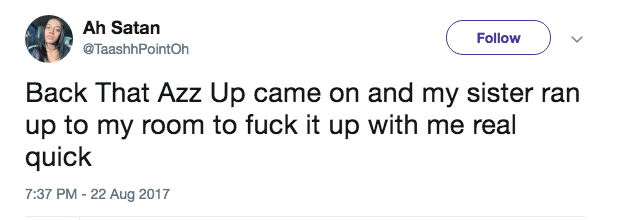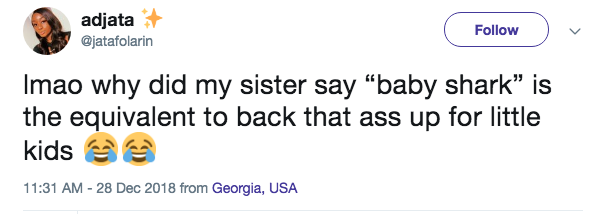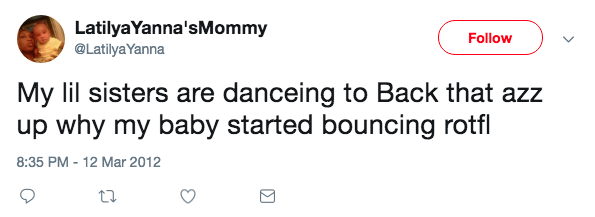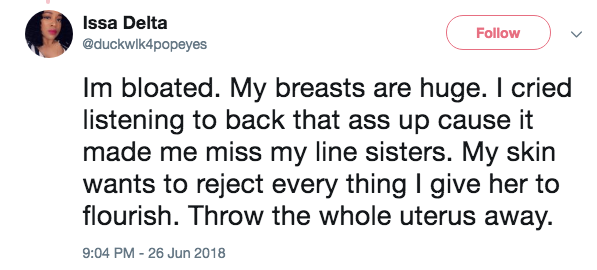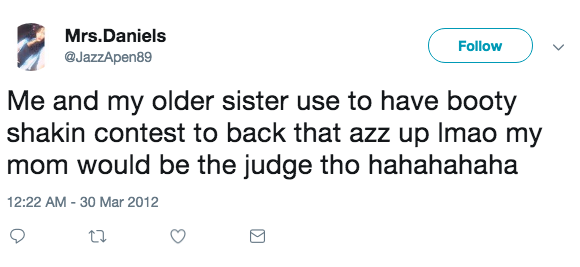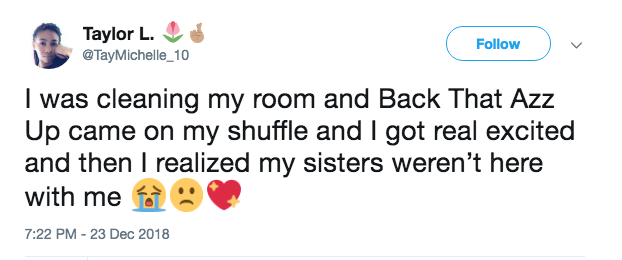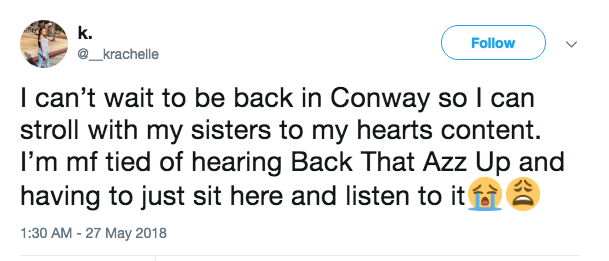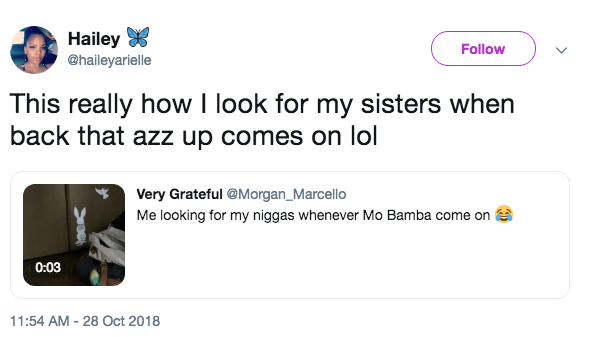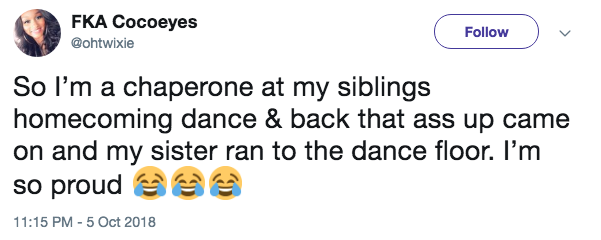For Black Women "Back That Azz Up" Is About Sisterhood
- Veronica Wells-Puoane
- Feb 24, 2019
- 4 min read

I always rolled my eyes when old folks tried to come for our contemporary music. But now that I’m rapidly approaching Auntie status, I know exactly what they meant. I pity these kids and the fact that mumble rap is the sound of their generation. Not only is the quality of the music...different, there’s so much of it. When anyone can upload a song onto Soundcloud or YouTube, the task of making music that will last generations has become extremely difficult.
Thankfully, I grew up in a golden area of music: the 90’s. And capping off that decade of impeccable music was a song written, produced, composed and performed by a group of Black men from New Orleans, Louisiana.
As the song announced, “Back That Azz Up” was released on February 24, 1999--exactly 20 years ago. We were on the precipice of a new millennium. And truth be told, there were more than a few people who believed the world would combust in the year 2000. And if we were all going to die, we might as well go out with our booties shaking.
Enter “Back That Azz Up.”
The song, which shot up to number 19 on the Billboard Hot 100, would introduce us to the phrase “drop it like it’s hot,” and become rapper Juvenile’s most popular single at the time. (Interestingly enough “Slow Motion” would dethrone it in 2004.)
Slow Motion is a superior song. Still, the idea that it is numerically the most popular is surprising given the fact that if you go to most any Black party, today, 20 years later, you’re liable to hear “Back That Azz Up.”
I was 11 going on 12 when “Back That Azz Up” was released. I was entering middle school. And while it wasn’t played during our school-hosted middle school dances, in the years to come, I would hear it repeatedly at house parties, high school dances--after the administration figured they were fighting a losing battle-- prom, in college, after college and forever more
Now that the song has become such a Black culture staple, I tried to remember what I first made of it when it was initially released. I would love to tell y’all that when the strings called, I kicked off my shoes, put my hands on my spread legs and bounced my ass, as instructed. But that would be a lie. I was and really still am averse to men I’m not fucking rubbing their protruding crotches against my behind. So I stood on the sidelines, humming the string part, appreciating the song but preferring not to dry hump in public view.
But the beauty of “Back That Azz Up” was that as the song got older, I noticed that the women who ran to the dance floor, more and more were doing so in an exhibition of their own skills. They’d push men to the side or form sister circles in order to properly dance to the song, unencumbered by niggas who wanted a prequel to the night’s coming attractions. The goal was no longer to entice, impress or arouse a man. The moves were and still are a display of rhythmical and physical strength, African in origin, and a potent mixture of Black women’s fierce sexuality and jubilance.
I have to believe that this was Juvenile’s intention all along. If you watch the video for “Back That Azz Up,” the women, who are around the way recognizably Black women, are dancing by themselves or with their girls. They’re elevated and isolated. In fact, in more than a few scenes, the men are restrained behind a chain-link fence as the women dance on the other side. Despite the objectifying lyrics, the music video tries to convey an almost family-friendly message.
Not once do you see a man ogling a woman. There is no grinding, juking, dutty wining, or dry humping. Even the babies danced to this, in between water gun fights. It was destined to go down in history as a Negro spiritual, something like a less respectable alternative to our other anthem “Before I Let Go.”
In honor of the song’s 20th anniversary, I asked Black women what the song meant to them.
Asha: Black female solidarity. There’s no unity among us quite like the “aw shiiit” that this song evokes.
Hana: You too fucking close in my personal space, homie.
Mieshia: The culture before White people learned about twerking.
Brittany: I mean, it’s everything. The video is nostalgic for me and the song itself moves me.
Vanessa: A reminder of my Blackness. When that countdown beat drops, every muscle activates.
L. Renee: A party. A celebration. A workout. It is the most accurate measure of fitness. It was the first time I could show people what New Orleans energy was. ‘
Speaking of New Orleans energy, this was, to my knowledge, the first time New Orleans bounce music crossed over into the mainstream. So while it was a phenomenon to us, I wondered if the native New Orleanians rocked with the song as much as the rest of us do. My first friend at my alma mater, University of Missouri was Temia Griffin, a New Orleans native turned lawyer. I haven’t spoken to her in years but her number was still in my phone so I texted her to ask what she thought of the song and thankfully she hit me back.
“Well as an advocate of feminism, I don’t condone the subliminal meaning/message behind the song. But as a life long resident of New Orleans, the lyrics don’t phase me. I’m probably one of the first ones on the dance floor when it’s played at marriage receptions, graduation parties, crawfish boils, on the floats, at Mardi Gras parades. That song is like “Choppa Style.” It’s deeply rooted in our city’s history.”
And Megan Braden-Perry, a New Orleans native and author of Crescent City Snow: The Ultimate Guide to New Orleans Snowball Stands, said, “We always thought it was just us who liked it. Only in recent years have we learned everyone really loves it.”
Indeed. It holds a special place in so many of our hearts.
The song may have been created entirely by men and it certainly objectifies us in its lyrics. Still, Black women have turned it into something sacred. And so, on its twentieth anniversary, we honor the song that gave us an opportunity to turn what was meant for our suppression into a show of solidarity and sisterhood.





